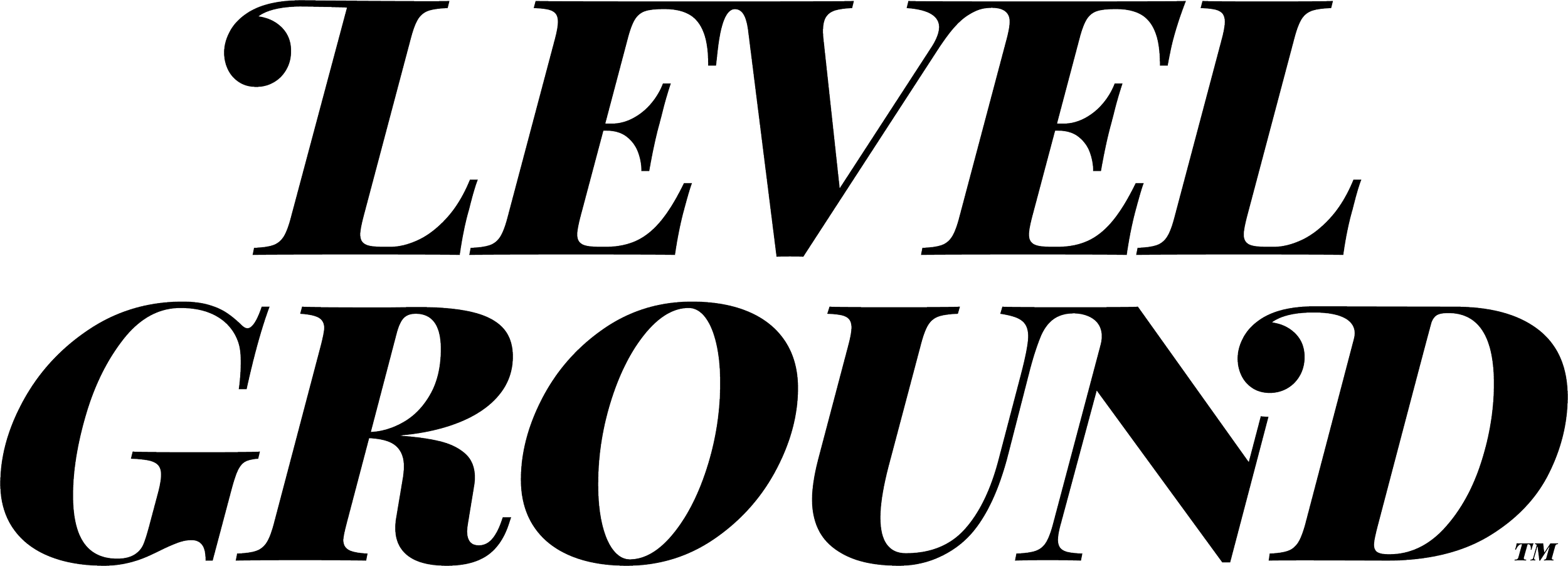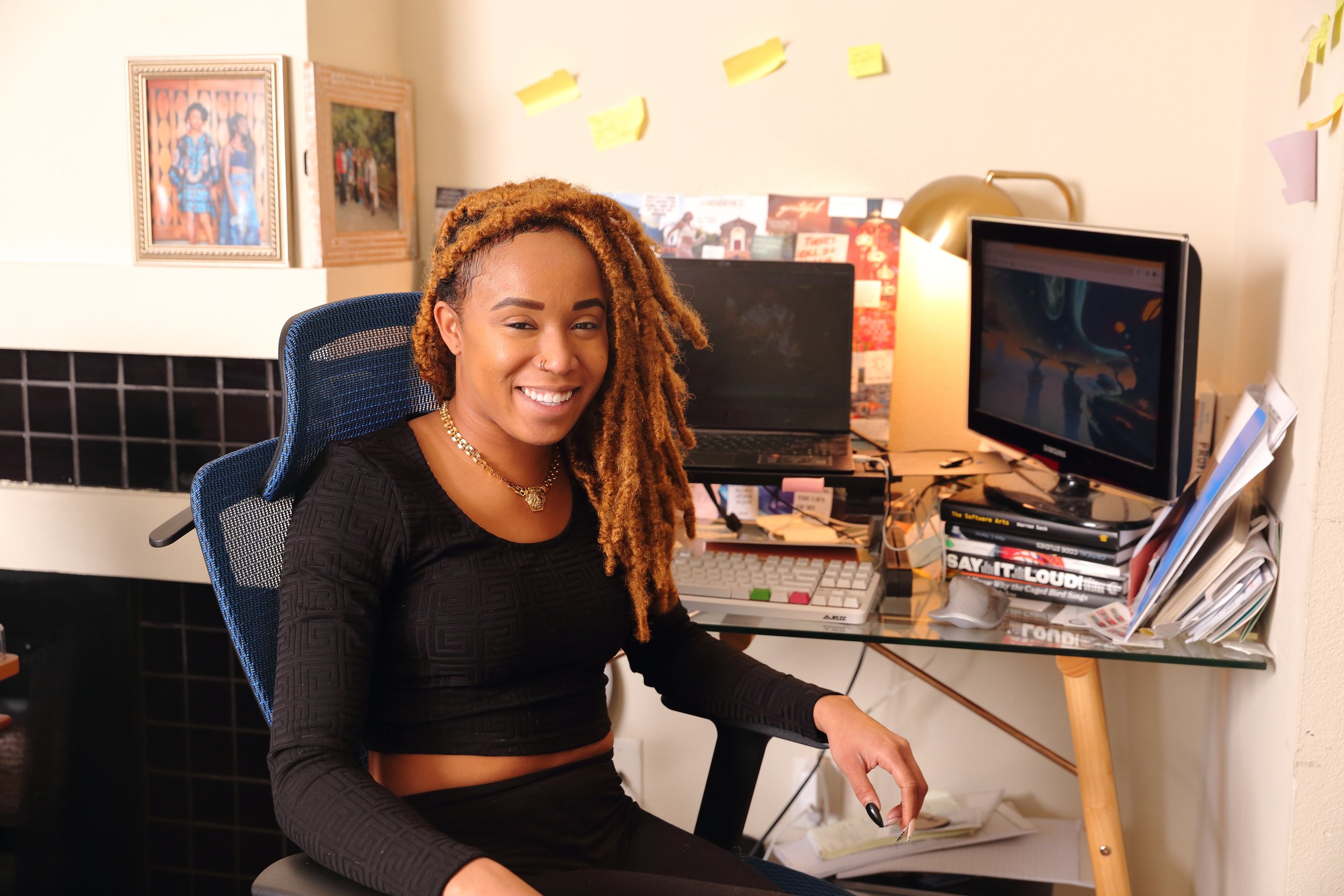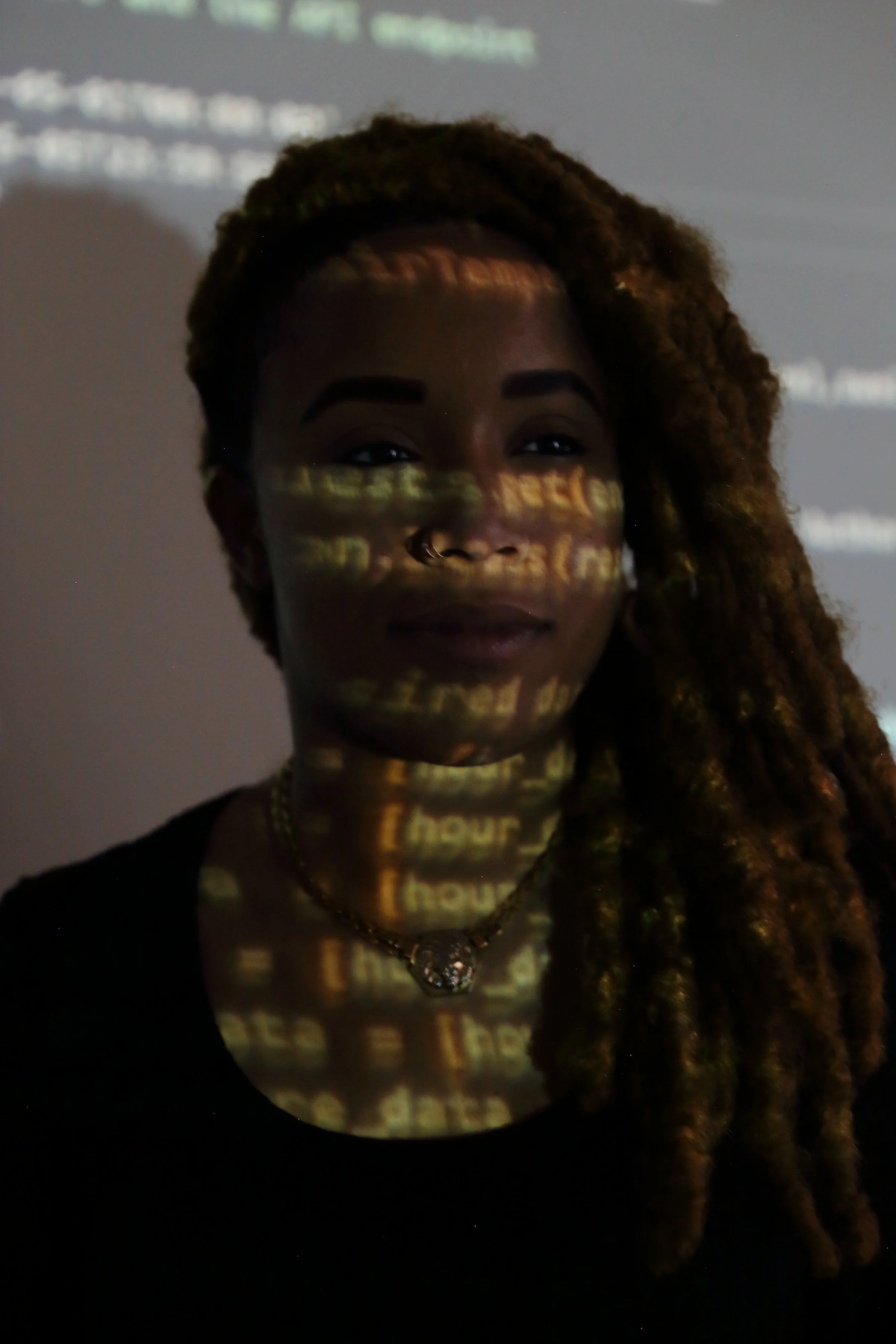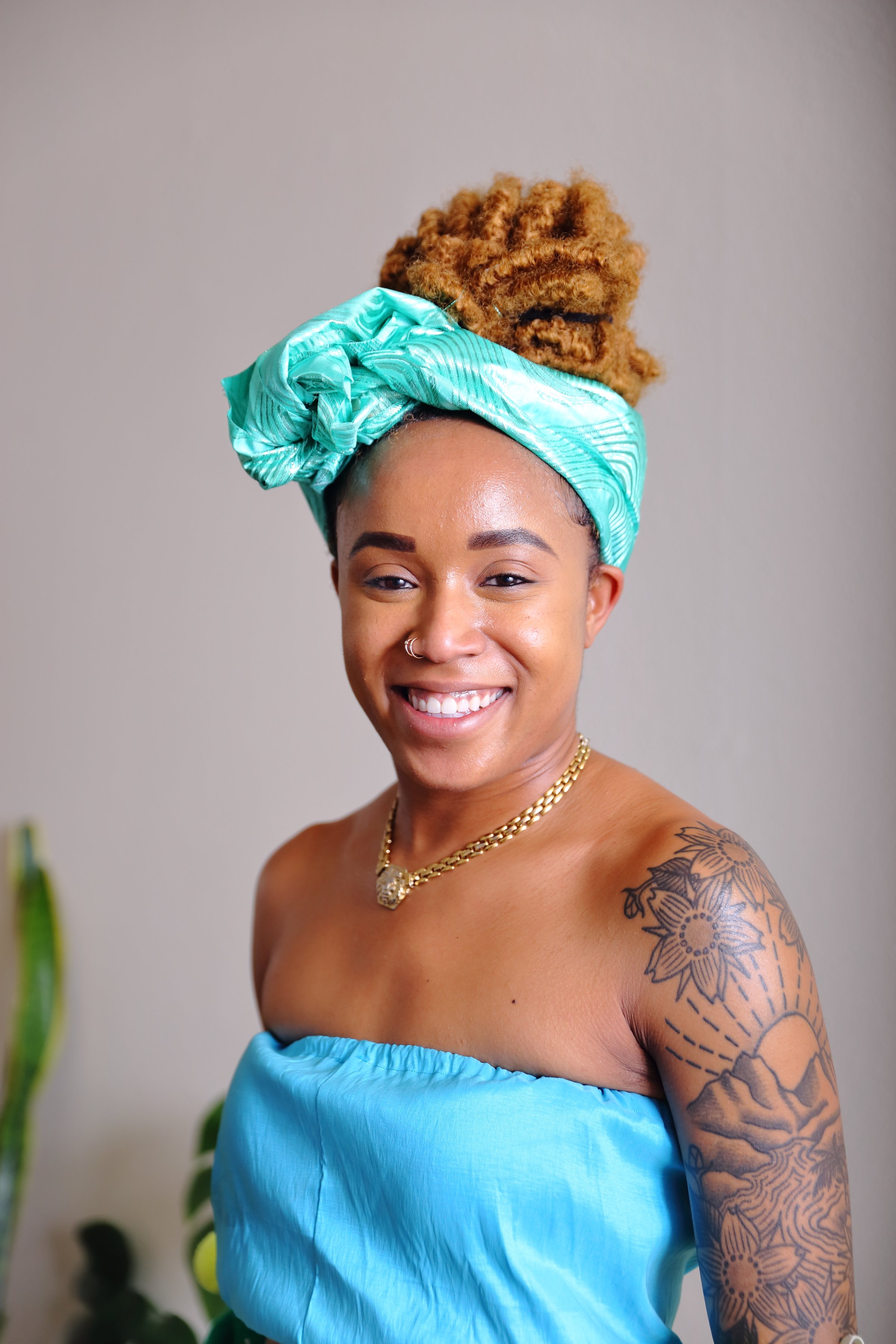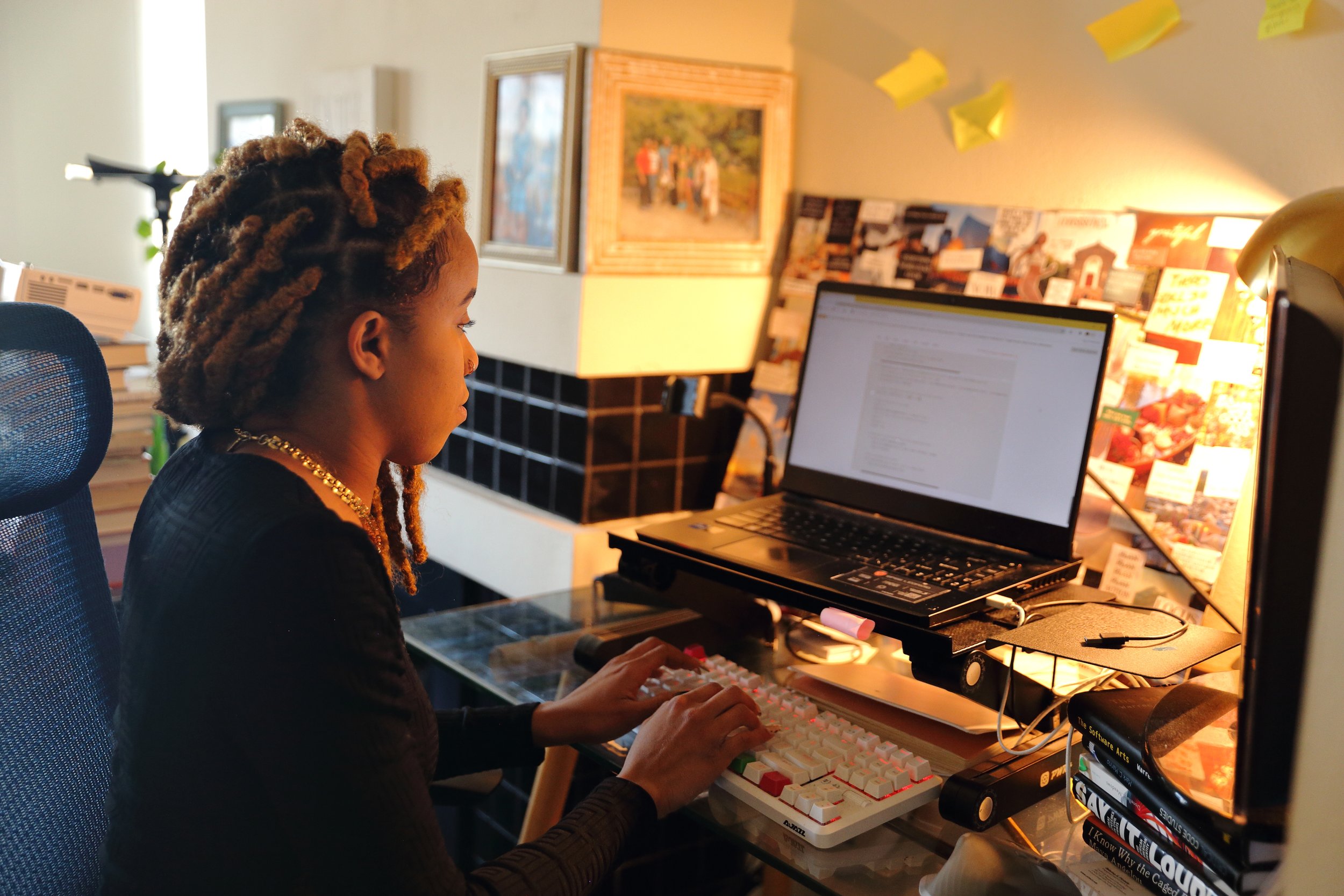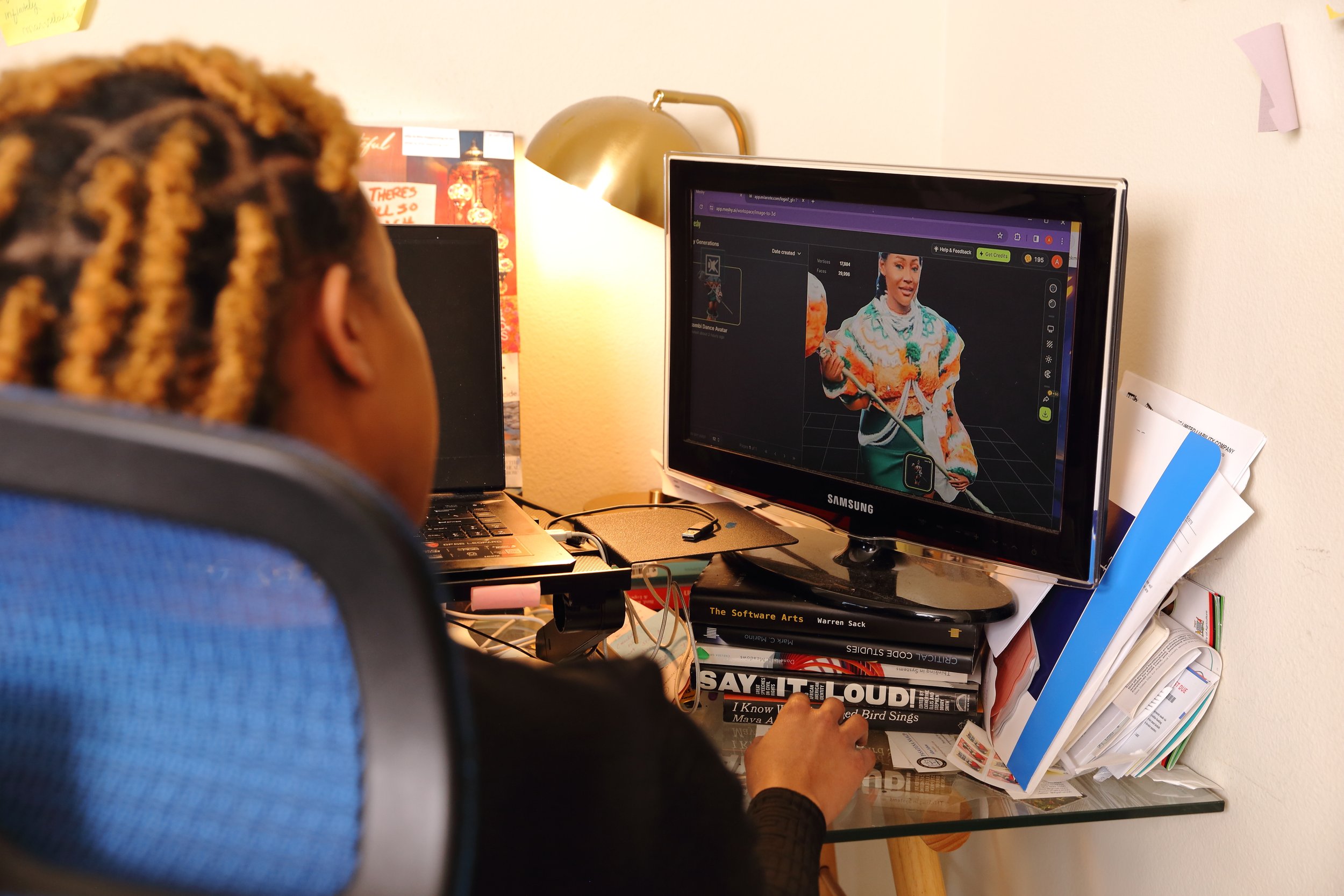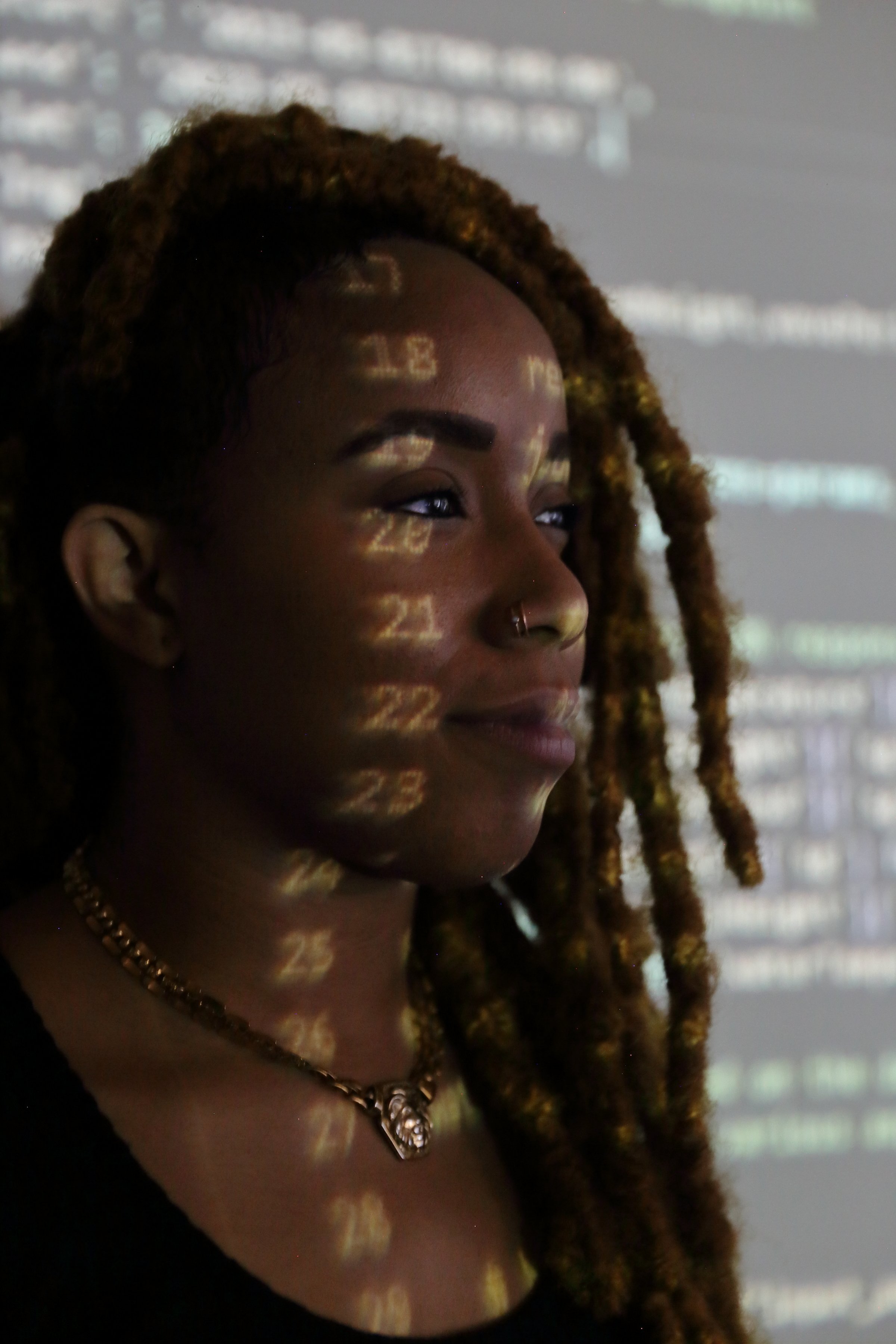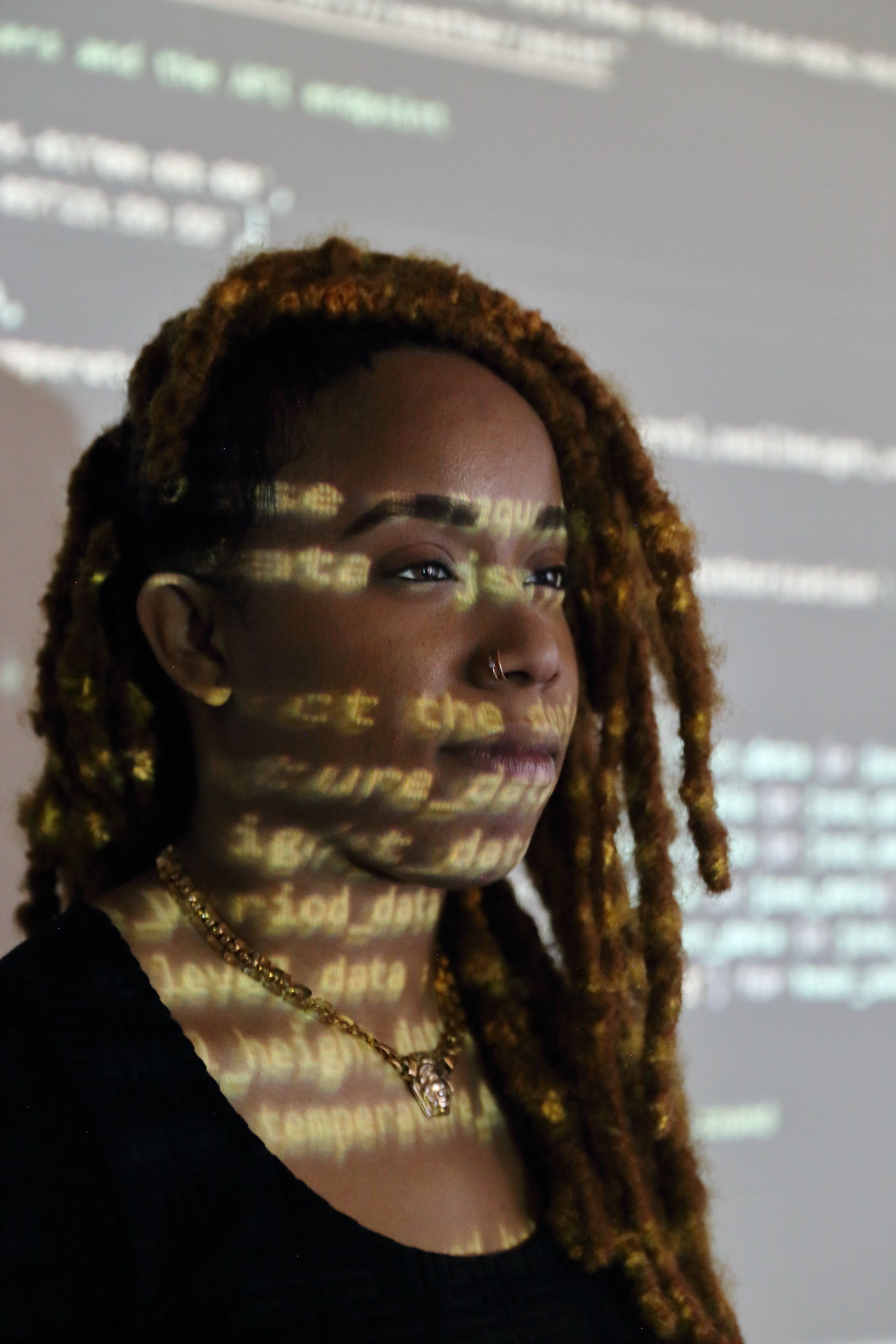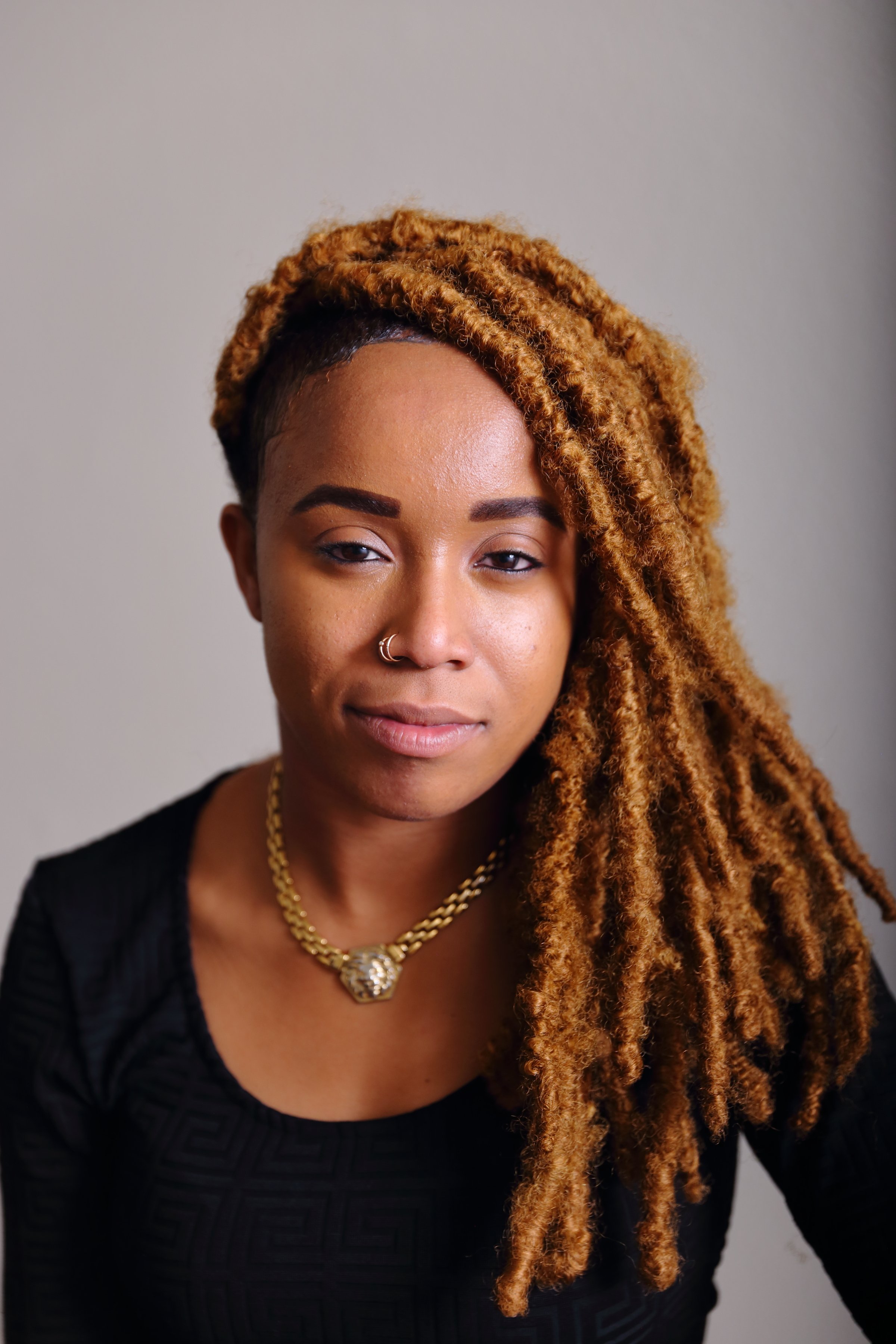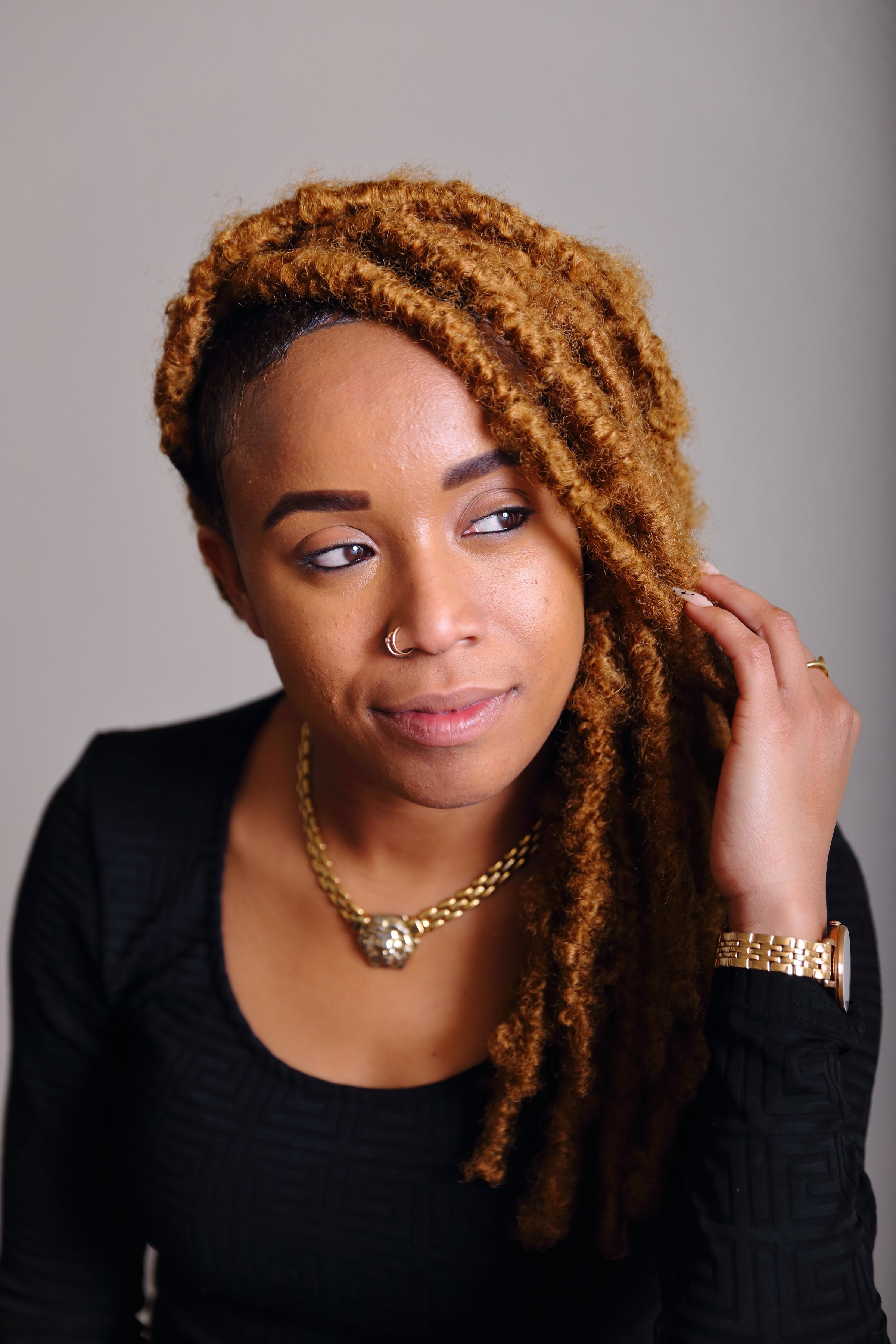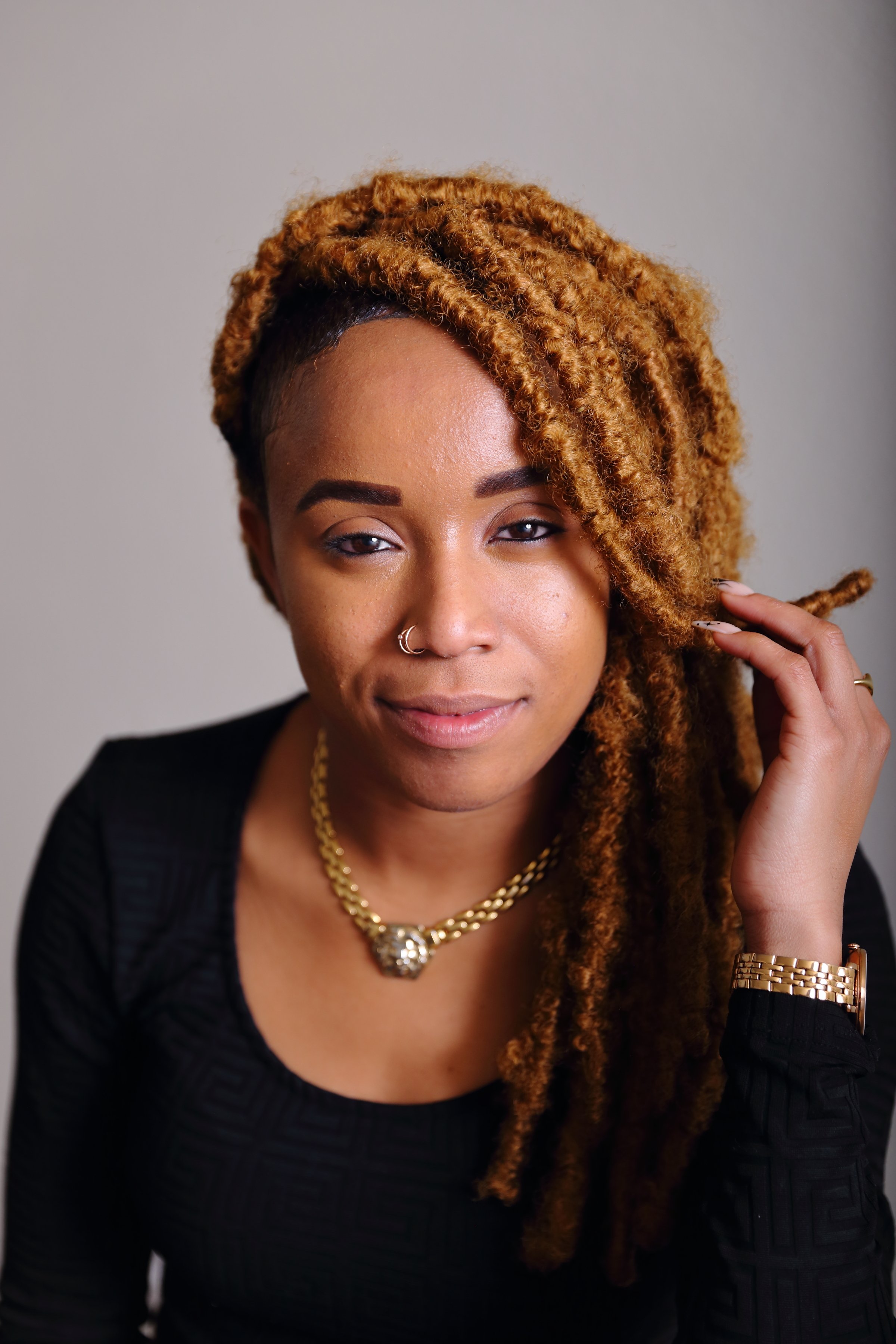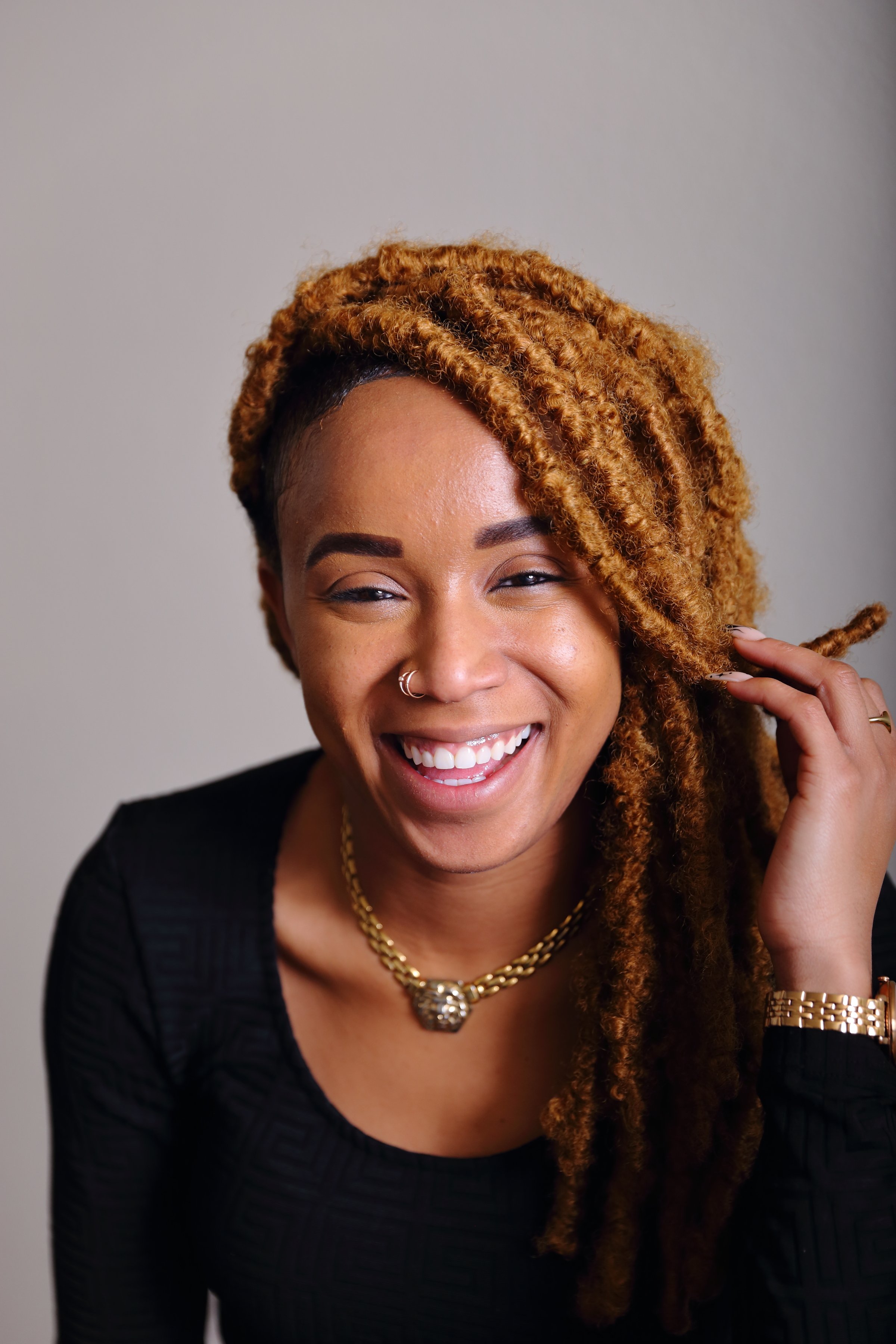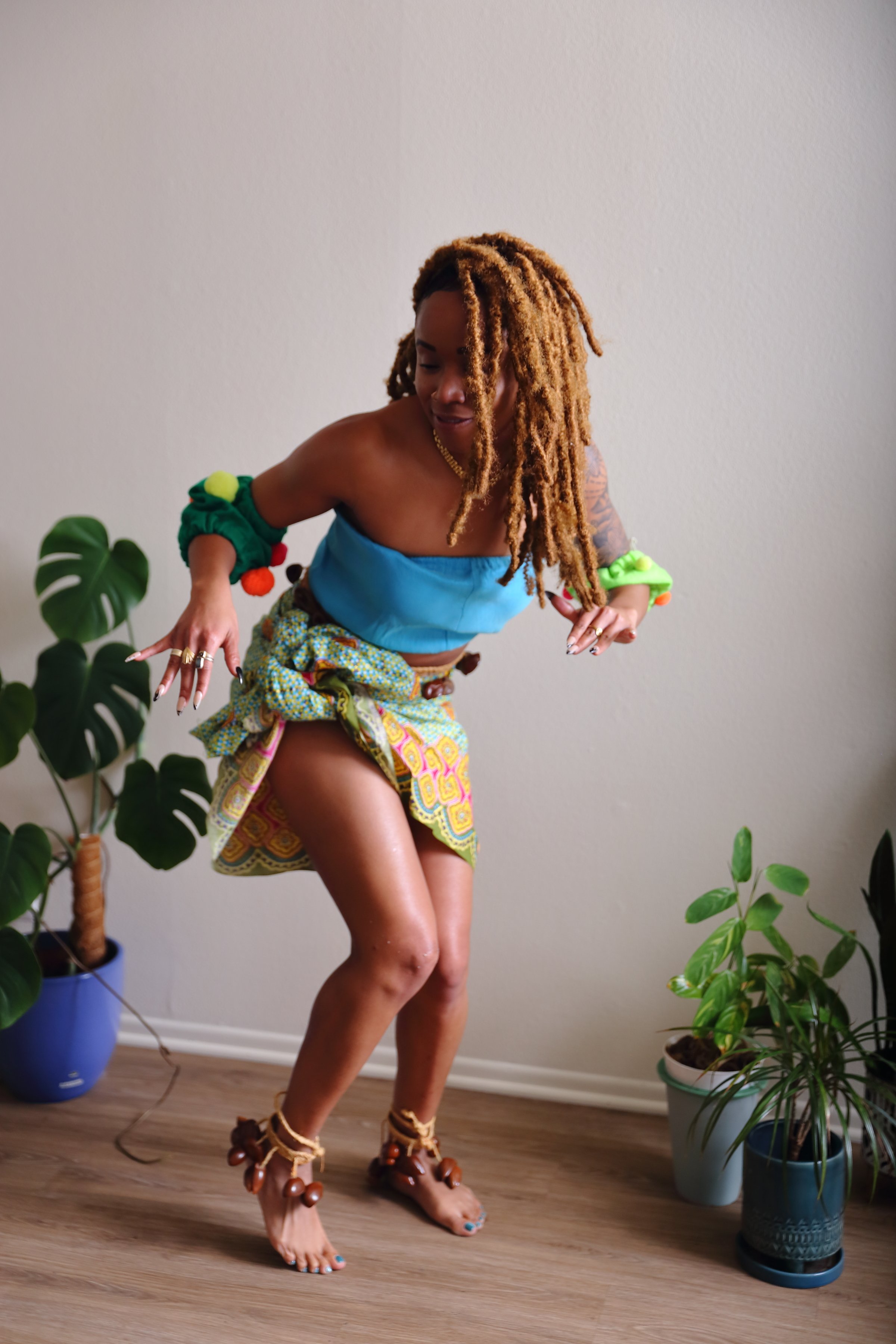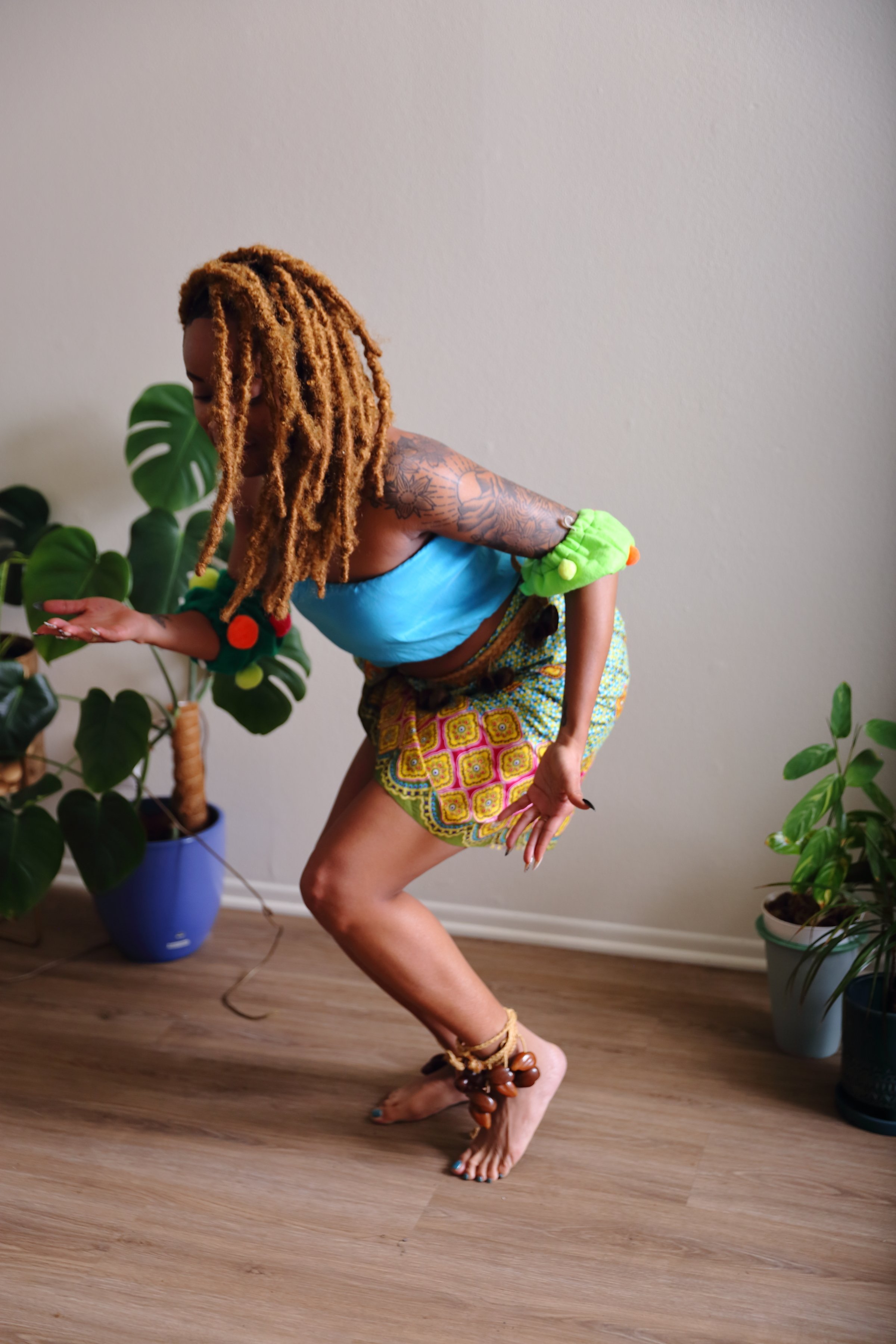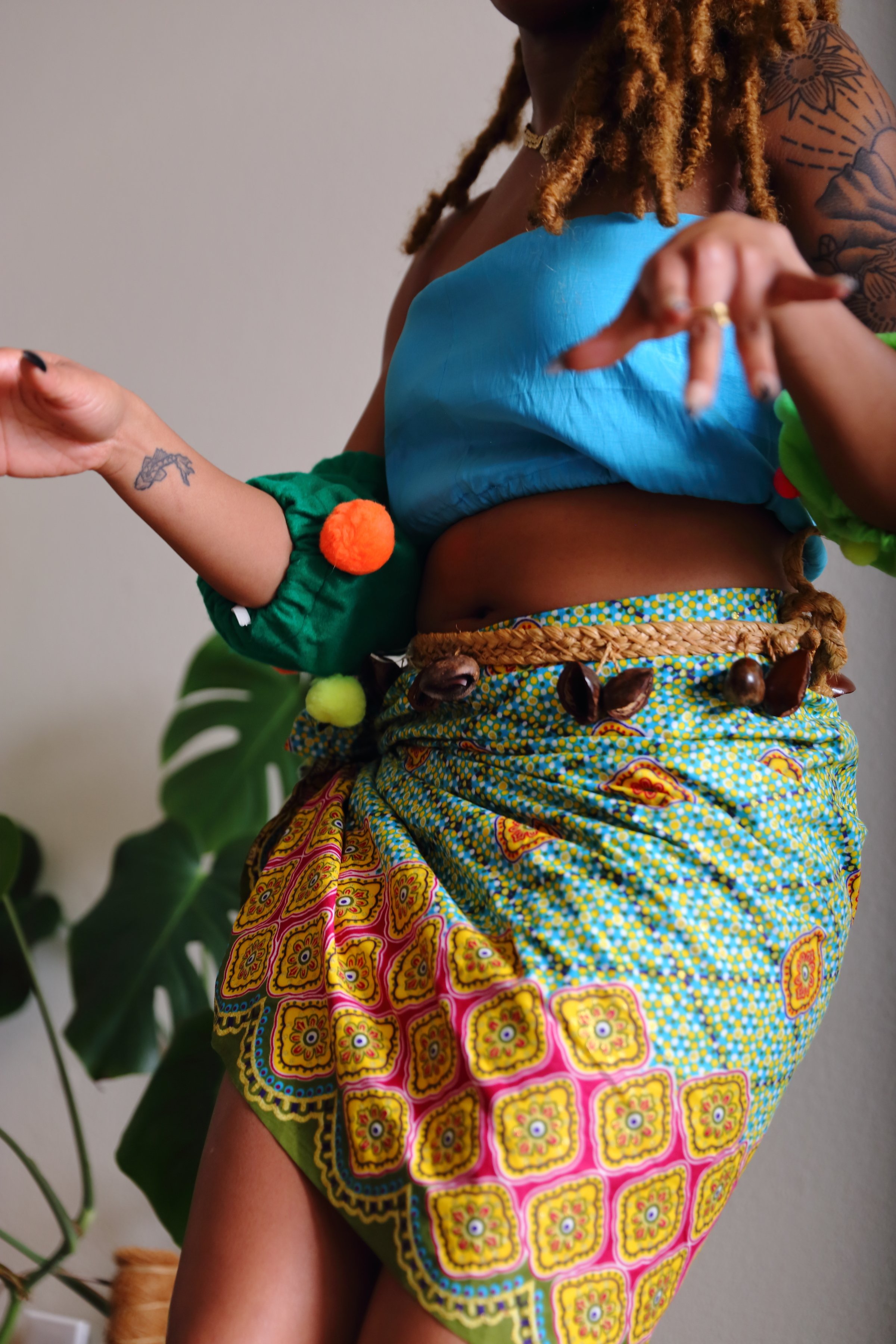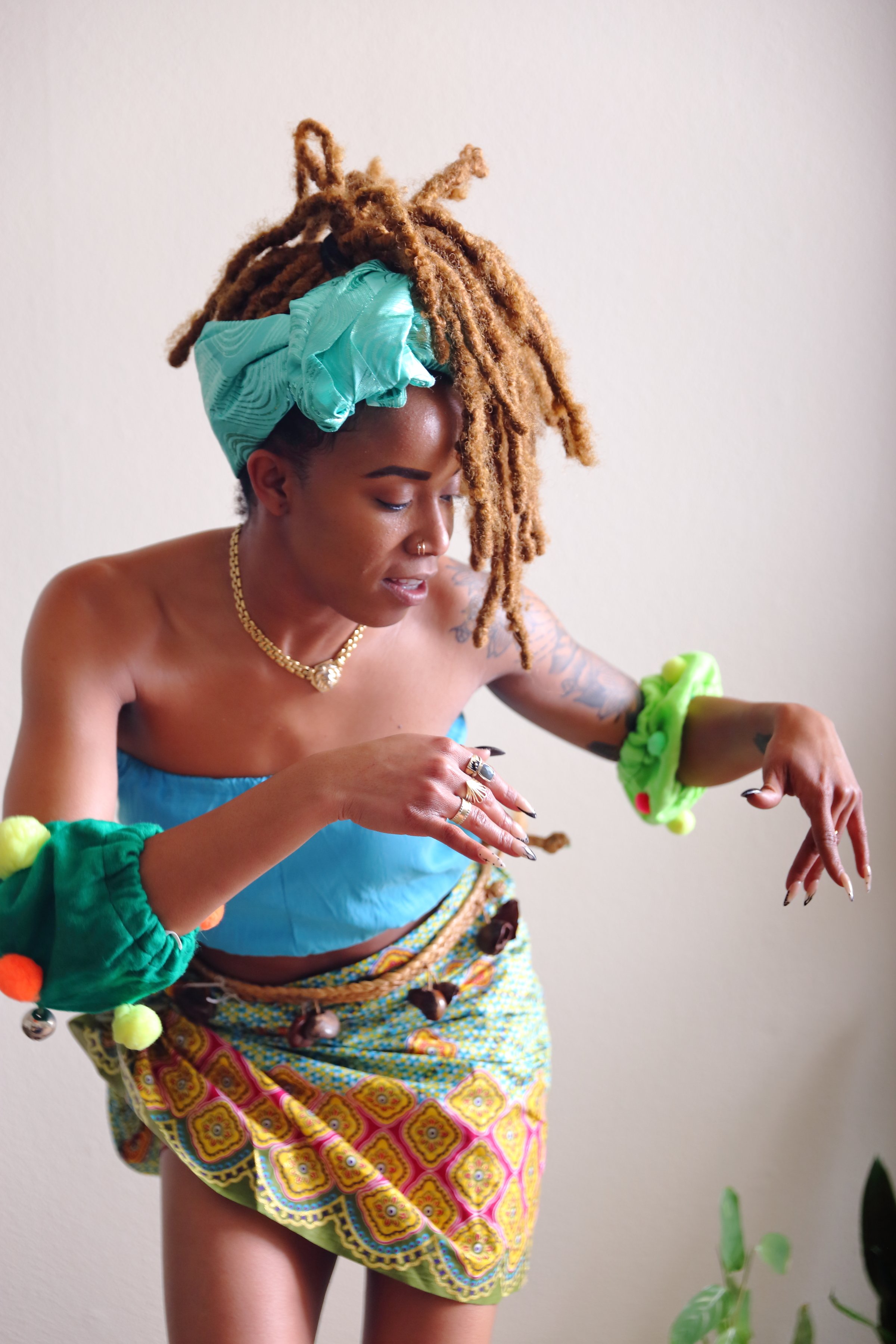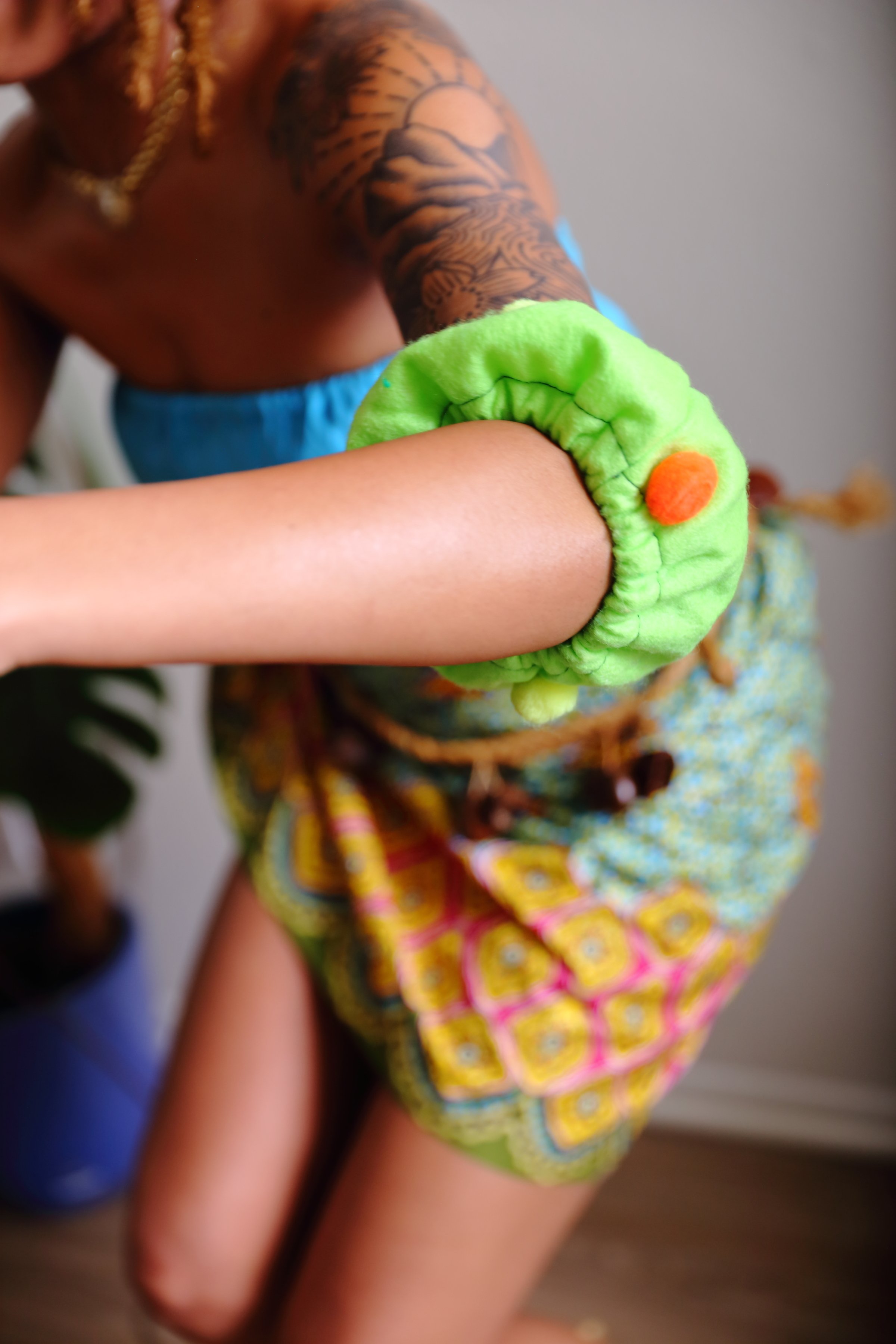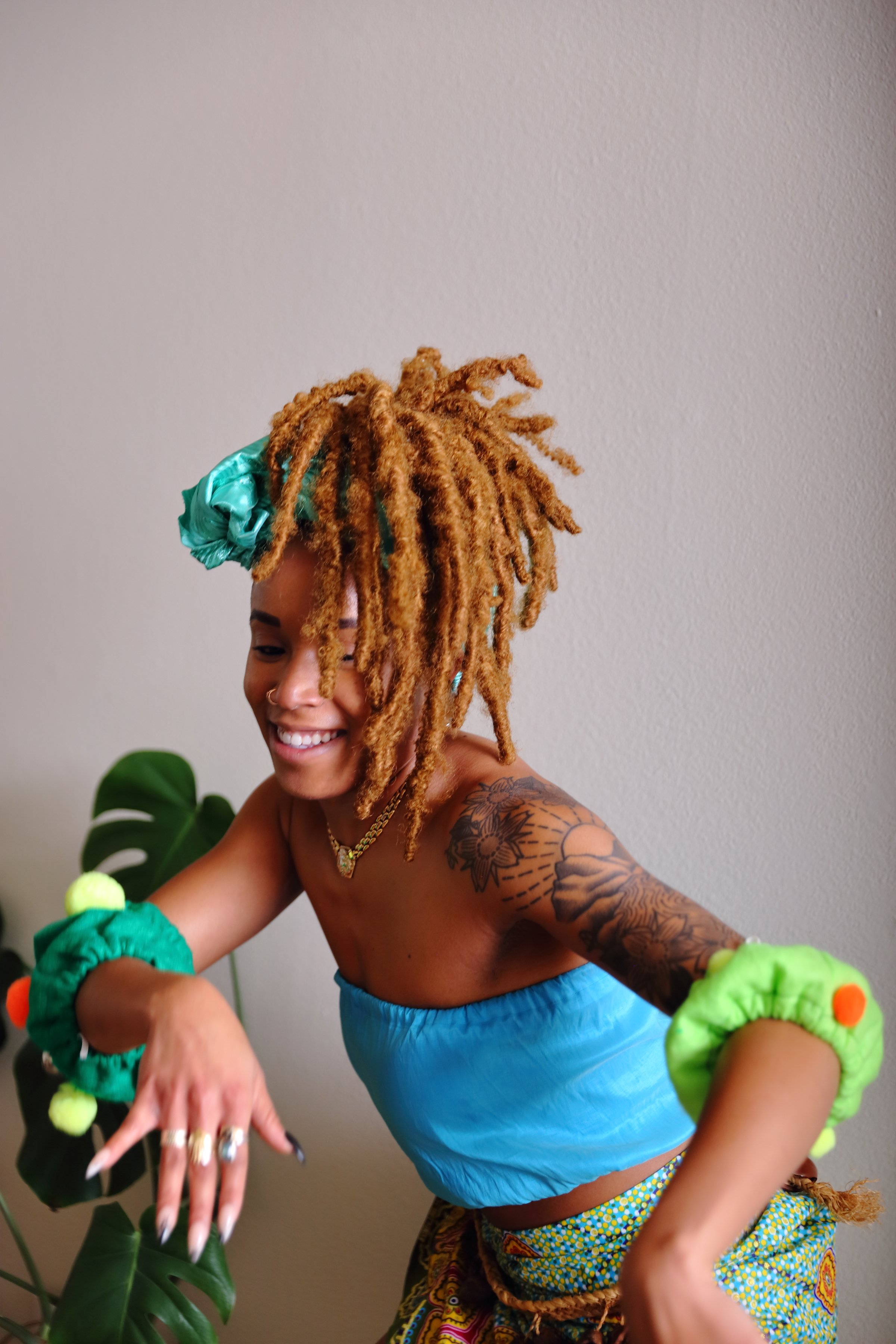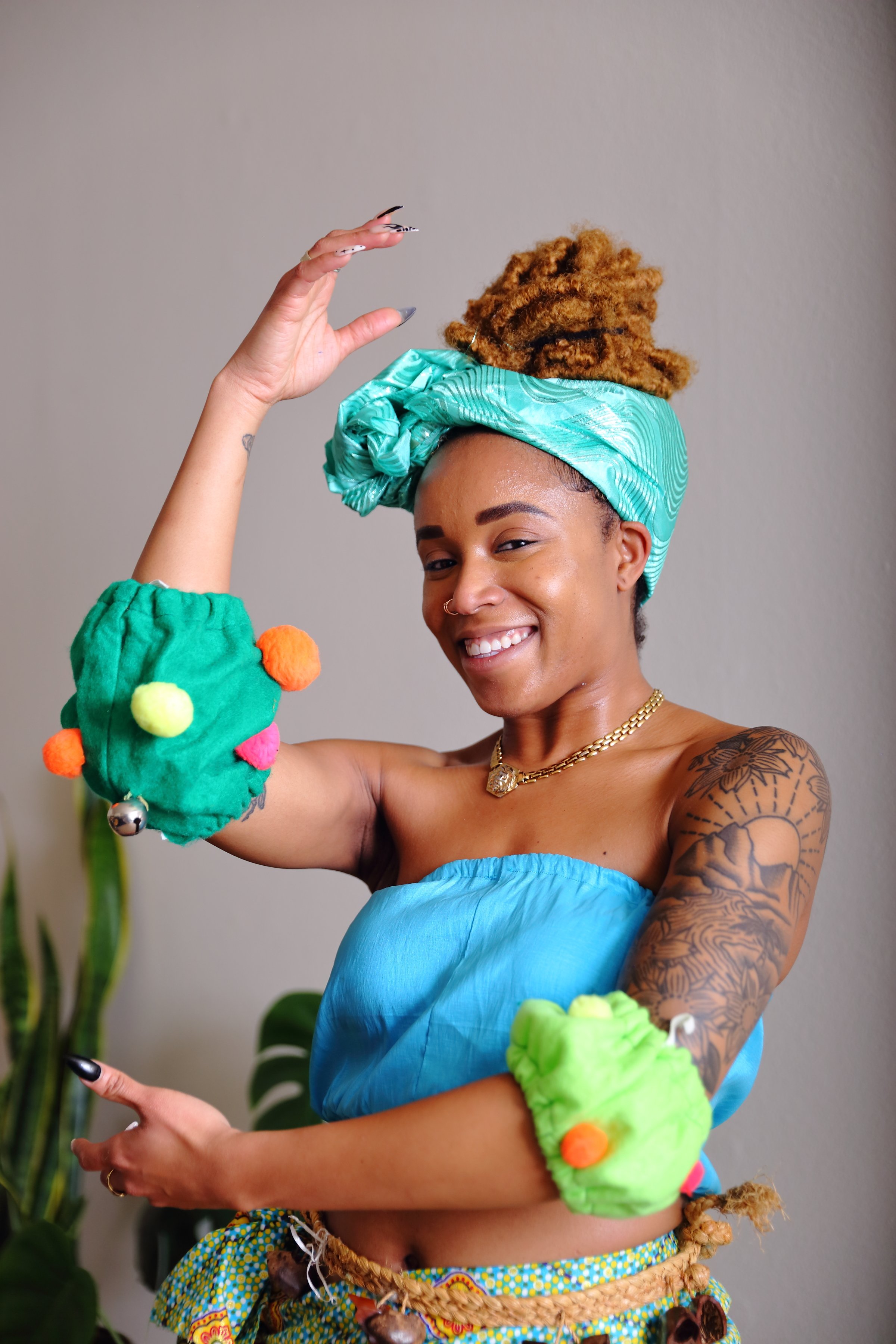Aya Umoh is Using Data to Create Culturally Impactful Artwork
Written By Shontel Horne
PhOtographed by Tina June MalEk
Can machine learning algorithms accurately reproduce the subtle nuance of emotional expression present in traditional dance forms? This is just one of the questions artist, performer, data scientist, and tech entrepreneur Faith "Aya" Umoh explores in her technological-meets-anthropological Level Ground residency show. Raised in Miami in a Nigerian-American family, Aya earned a Master's from Boston University in Biostatistics and Public Health, and she's on a mission to use AI to tell stories in ways that we rarely see.
From her days winning math competitions to her time in the Peace Corps in Senegal, Aya has always known about the power of data. Soon after a mentor introduced her to the potential of AI in art, Aya began examining how bias, representation, and the creation of alternative, inclusive futures can impact artists, innovators, and communities
Shontel: How did you get introduced to Level Ground?
Aya: I got into this through (Carrie?) who was one of the judges. I saw an advertisement and it hit what I was looking for. Every year I create a list of things I want to manifest, and I wanted to manifest a community of artists in L.A. I wanted a space and time to work on something. Along with being an artist, I'm also a data scientist, so I'm very nerdy and experimental. Those values drew me to Level Ground. I'm also a queer person and a woman of color and it just seemed like this would be like an amazing opportunity. It's a project that's bringing me closer to who I am, which is cool.
S: What has it been like to create a show of this scale?
A: One of the pieces that I want to do is digitally archive traditional African dances, specifically the Ekombi dance. These dances traditionally happen outside in nature. It's been great being in L.A. and talking to different people in the dance, immersive and interactive space, just to think through how I want to ideate and bring in participation. This type of show hasn't been fully done yet, although I have started to see more examples. I didn't want this to be a show where you come and see me. I want you to become a part of it.
“I’m Nigerian, but I’m a minority Nigerian. Even in my state, we’re minorities, so it’s dope to see people talking about Ekombi. ”
S: Your professional work explores the limitations of and inherent biases in machine learning and AI. How do you see your work contributing to the conversation around preserving culture, especially considering the historical exclusion or late acknowledgment of contributions from Black and Brown communities in technology?
A: I believe that's why I exist. My work is built upon this principle or framework called techno-vernacular creativity. It's made by this amazing artist named Nettrice Gaskins. She was one of the first people that I saw in the space using AI models but from our perspective. She got her PhD from Georgia Tech and she made the point that oftentimes we are not a part of conversations around new media and new technology, but when it's in our hands, we create novel and unique patterns.
S: How does your artistic work influence your career in technology?
A: They're aligning with each other, which is what I'm working for. I have a studio and company and my first product is around dance and interactivity. I like repurposing the same work and even my full-time product manager gig requires skills I'm able to apply to everything I do.
S: Where do you envision your current work leading and growing into over the next five years?
A: Going along this path, there'll be so many interesting creative tech and things to explore if we gave more minorities the voice to explore them. I'm Nigerian, but I'm a minority Nigerian. Even in my state, we're minorities, so it's dope to see people talking about Ekombi. Five years from now, more people will have more stories and better stories. Stories that are more immersive, interactive, and participatory, but also very much about the culture.
S: How do you balance the part of your culture you want to share with the part that you want to protect? Is it possible to do both?
A: Given that I'm from this culture, I feel like more people from the spaces should be creating the work from these spaces. We're writing the rules and stating how these things are versus it being imposed on us or someone else doing it. Busboys and Poets in Washington D.C. isn't black-owned. It should be for us, by us. That is the way we're protecting our space.
"It should be for us, by us. That is the way we're protecting our space."
〰️
"It should be for us, by us. That is the way we're protecting our space." 〰️
S: Why is it important to consider all of your experiences when aiming for innovation in work or art?
A: I spent a lot of time thinking about what makes me unique, what I want to do, and what I like. Data has always been there and I've been good at it. Someone told me once that life is not linear. It's about figuring out and trying new things, being open to the possibilities, and applying to all the things that spark your mind. When I got Level Ground, it was nice to know you guys believe in me. Put yourself out there and be open to the possibilities. I feel like that's what's always served me; just being open.
S: What is your philosophy on collaboration in creating your artwork?
A: I observe whether people are genuinely interested or not. I want someone to genuinely, honestly want to be here. I don't want favors. I like to collaborate with people who have things I don't have or who are more organized than me, but fundamentally, our passions should align.
S: What conversations do you hope your work will spark?
A: The first is "What's Ekombi, where it's from and what does it mean?" Highlighting Nigerian culture is something that I'm excited to explore. I also hope that they come out thinking of ideas. I hope that it inspires people to explore and experiment more with art and data and not to be afraid of it. There are reasons to be alarmed. I 100% agree that AI should be regulated, just like everything is regulated, but there's a collaborative and good side to AI and technology. That's something that I hope opens people's minds.
"I hope that it inspires people to explore and experiment more with art and data and not to be afraid of it."
〰️
"I hope that it inspires people to explore and experiment more with art and data and not to be afraid of it." 〰️
Shontel Horne is a writer, filmmaker and multidisciplinary artist whose visual work spans photography, documentary and experimental film. Her artwork, which explores race, technology, the American South, and gender expectations, has been showcased in Level Ground’s Skew Magazine and the Go Tell It film series. Her writing has been featured in Conde Nast Traveler, Popsugar and Huffpost. Currently, her work is on view at the (re)FOCUS at City Hall: Philadelphia Women in the Visual Arts exhibit. She is the founder of MAE The Third production company and co-founder of retail and events concept Bonde Mercado.
Tina June Malek is an Iranian American photographer specializing in portraits and event documentation. Her childhood in Japan taught her the importance of representation and community, underscoring her mission as a photographer to represent people the way they see themselves. She will not put the camera down until she captures the spirit of the moment and sees the joy on her subjects faces when they see themselves in the photographs.
